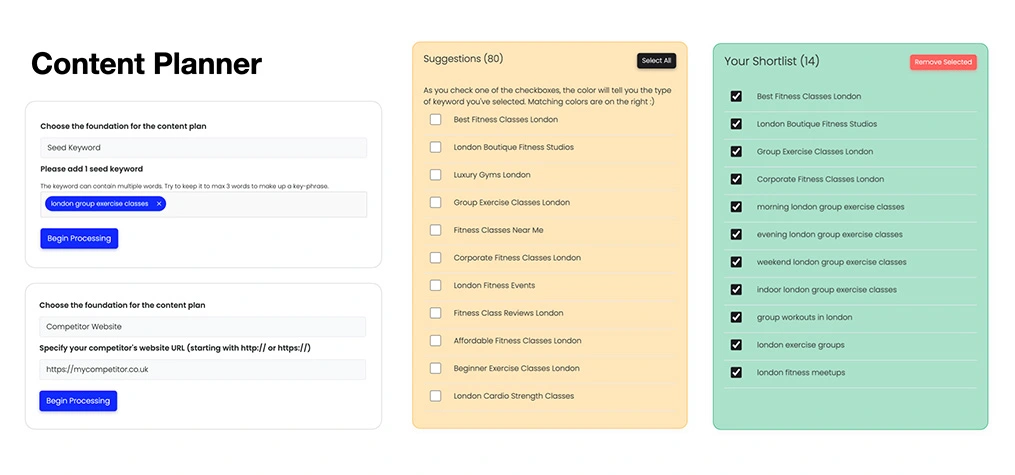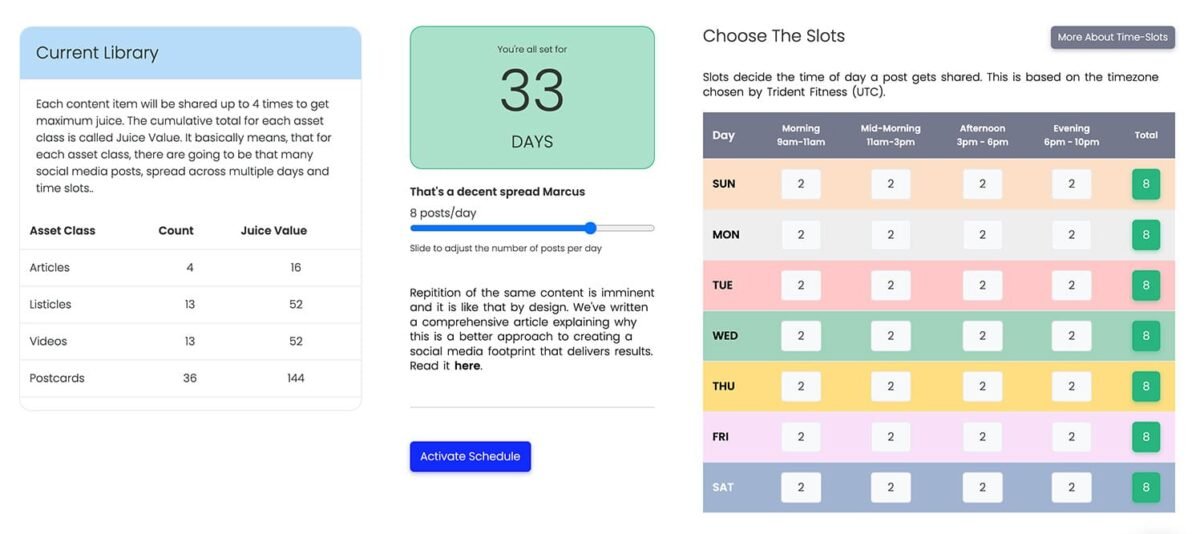
Table of Contents
As businesses continue to navigate the digital landscape, the role of AI in content strategy has become increasingly important. Leveraging AI technology can help businesses automate their marketing efforts, grow their online presence, and engage with their target audience more effectively. In this article, we will explore the significance of crafting an effective AI content strategy and provide valuable tips and best practices to help businesses succeed in their digital marketing endeavors.
Can an individual keep up with the advancing of technology? Can a team of individuals stay up to date in today’s digital-dominant world without the assistance of technology?
Think of all the tasks that need to be performed before any piece of content goes live: keyword research, reviewing data, analytics and trends, search engine optimization and content writing — from personalizing to optimizing. Tasks like these can quickly add up, and marketers are spending valuable writing hours researching, testing and optimizing.
However, as the digital world expands and technology grows increasingly advanced, there’s no denying that artificial intelligence (AI) is going to — and has already started to — change the game of content marketing:
Forbes
Understanding the Role of AI in Content Strategy
AI plays a crucial role in content strategy by enabling businesses to analyze data, identify trends, and understand consumer behavior. By leveraging AI-powered tools, businesses can gain valuable insights that inform their content creation and distribution strategies. AI can help businesses to personalize their content based on the preferences and behavior of their target audience, leading to more effective engagement and conversion. Understanding the role of AI in content strategy is essential for businesses looking to stay ahead in the competitive digital landscape and deliver content that resonates with their audience.
Furthermore, AI can also assist businesses in optimizing their content for search engines and improving their overall online visibility. By utilizing AI algorithms to analyze search patterns and keywords, businesses can tailor their content to better align with what their audience is searching for, ultimately driving more traffic to their website and increasing brand exposure. This aspect of AI in content strategy is crucial for businesses aiming to enhance their online presence and reach a wider audience.
Additionally, AI can aid businesses in monitoring and evaluating the performance of their content across various channels. Through AI-powered analytics, businesses can track the impact of their content in real-time, identify areas for improvement, and make data-driven decisions to refine their content strategy. This continuous feedback loop facilitated by AI technology allows businesses to adapt and evolve their content strategy to meet the changing demands and preferences of their audience, ultimately leading to more meaningful and impactful content delivery.
Leveraging AI for Content Planning and Optimization

When it comes to content planning and optimization, AI plays a crucial role in providing businesses with data-driven insights to understand what type of content resonates with their target audience. By analyzing user behavior and preferences, AI technology can help identify relevant topics, keywords, and formats that are most likely to capture the attention of the audience. This allows businesses to tailor their content to meet the specific needs and interests of their audience, ultimately leading to higher engagement and conversion rates.
Furthermore, AI can assist businesses in understanding the ever-changing landscape of online content consumption. With the ability to analyze trends and patterns in real-time, AI can help businesses stay ahead of the curve by identifying emerging topics and content formats that are gaining traction. This proactive approach to content planning and optimization ensures that businesses are able to create and distribute content that is not only relevant but also timely, further enhancing their online presence and audience engagement.
By leveraging AI for content planning and optimization, businesses can streamline their content creation process and ensure that their efforts are focused on producing high-quality, impactful content. AI can automate tasks such as keyword research, topic ideation, and content performance analysis, allowing businesses to allocate their resources more efficiently. This not only saves time and effort but also enables businesses to consistently deliver compelling content that resonates with their audience, ultimately driving better results and achieving their content marketing goals.
Implementing AI in Content Marketing Strategy
Implementing AI in content marketing strategy allows businesses to harness the power of data to personalize their content based on consumer preferences and behavior. By analyzing customer data, AI-powered tools can help businesses understand their audience better and tailor their content to meet their specific needs and interests. This level of personalization can significantly enhance the overall customer experience and increase engagement with the brand.
Furthermore, AI can be used to optimize email marketing campaigns by analyzing customer interactions and behavior to deliver more targeted and relevant content. By leveraging AI technology, businesses can create more effective email marketing strategies that are tailored to each recipient, resulting in higher open and click-through rates. This personalized approach can lead to better conversion rates and ultimately drive more revenue for the business.
Additionally, AI can assist businesses in creating targeted advertising strategies by analyzing consumer data and identifying patterns and trends. By understanding consumer behavior and preferences, businesses can create more personalized and relevant advertising campaigns that resonate with their target audience. This targeted approach can lead to higher conversion rates and a more efficient use of advertising resources, ultimately leading to a better return on investment for the business.
Utilizing AI for Content Distribution
Utilizing AI for content distribution is essential for businesses looking to enhance their online presence and engage with their target audience. By leveraging AI technology, businesses can identify the most effective channels and timing for content delivery. AI-powered analytics can provide valuable insights into audience behavior, allowing businesses to optimize their content distribution strategy for maximum reach and impact. This strategic use of AI can help businesses ensure that their content reaches the right audience at the right time, maximizing its effectiveness and ultimately leading to a higher level of engagement and interaction.

Furthermore, AI can assist businesses in personalizing their content distribution strategy to cater to the specific preferences and behaviors of their target audience. By analyzing data and patterns, AI can help businesses tailor their content to resonate with their audience, increasing the likelihood of engagement and interaction. This personalized approach to content distribution can result in a more meaningful and impactful connection with the target audience, ultimately leading to a stronger online presence and brand reputation.
Overall, the utilization of AI for content distribution not only helps businesses streamline their marketing efforts but also ensures that their content is reaching the right audience at the right time. By harnessing the power of AI technology, businesses can enhance their content distribution strategy, maximize the impact of their content, and ultimately achieve their online engagement and presence goals.
Best Practices for Crafting an Effective AI Content Strategy
When crafting an effective AI content strategy, businesses should focus on leveraging AI technology to understand their audience. This involves using AI tools to analyze data and gain insights into the preferences, behaviors, and needs of their target audience. By understanding their audience better, businesses can create content that resonates with their audience and drives engagement.
Personalizing content is another crucial aspect of crafting an effective AI content strategy. AI technology can be used to tailor content to the specific interests and preferences of individual users, creating a more personalized and relevant experience. This can lead to higher levels of engagement and better overall performance for businesses.
Optimizing distribution efforts is also essential for an effective AI content strategy. Businesses can use AI technology to identify the most effective channels and timing for content distribution, ensuring that their content reaches the right audience at the right time. By continuously monitoring and adjusting distribution efforts based on AI insights, businesses can maximize the impact of their content strategy.
You can either do it all on your own, of use Media Monk to save hundreds of hours.


